
Germany: complete closure of A43 in the direction of Münster
The closure is due to the construction work on the Deutsche Bahn bridge parallel to the Cranger Straße bridge.
As already announced, the A43 will be closed between Herne-Eickel and the Recklinghausen junction from 9 PM on Friday (July 1) to 5 AM on Monday (July 4). ❗All through traffic is diverted via the A40 and the A45.❗
The full closure is being used as an opportunity to carry out additional maintenance work on the motorway. For this reason, only one lane is temporarily available in the direction of Wuppertal near the barrier system south of the Recklinghausen junction.
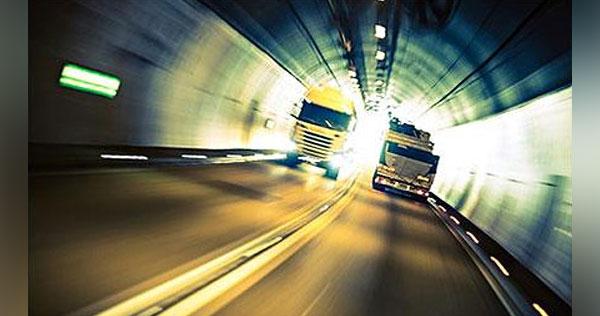
Belgium – closures of the Tijsmanstunnel tunnel
The both pipes of the Tijsmanstunnel (R2) tunnel will be closed at the end of May and the beginning of June in order to install new wall panels.
Night closures of the tunnel in the direction of Ghent:
* from 8:00 PM on Tuesday, May 24 to 5:00 AM on Wednesday, 25 May;
* from 8:00 PM on Wednesday, 25 May to to 5:00 AM on Thursday, 26 May;
* from 8:00 PM on Monday, 30 May to 5:00 AM on Tuesday, 31 May.
Night closures of the tunnel in the direction of the Netherlands:
* from 8:00 PM on Tuesday, May 31, to 5:00 AM on Wednesday, June 1;
* from 8:00 PM on Wednesday, June 1 to 5:00 AM on Thursday, June 2;
* from 8:00 PM on Thursday, June 2 to 5:00 AM on Friday, June 3.
The Tijsmanstunnel tunnel will also be closed for regular maintenance:
In the direction of Ghent:
* on the night from Monday, 13th to Tuesday, 14th of June;
* on the night from Monday, 12th to Tuesday, 13th of September;
* on the night from Monday, 14th to Tuesday, 15th of November.
In the direction of Netherlands:
* on the night from Tuesday, 14th to Wednesday, to 15th of June;
* on the night from Tuesday, 13th to Wednesday, 14th of September;
* on the night from Tuesday, 15th to Wednesday, 16th of November.
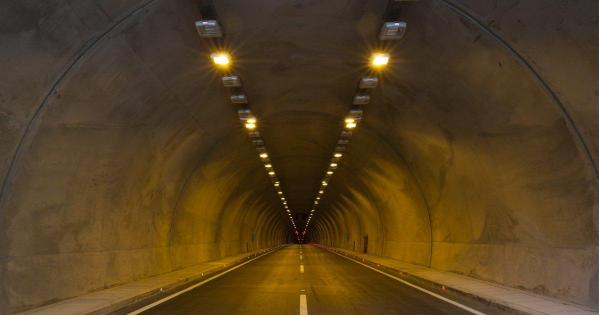
Closures of the Mont Blanc Tunnel in June and July
Owing to maintenance works, the tunnel will be completely closed from 7:30 PM to 6:00 AM on the following nights.
JUNE
– Thursday, 23rd / Friday, 24th;
– Monday, 27th / Tuesday, 28th;
– Tuesday, 28th/ Wednesday, 29th;
– Wednesday, 29th / Thursday, 30th;
– Thursday, 30th / Friday, 1st July.
JULY
– Monday, 4th / Tuesday, 5th;
– Tuesday, 5th / Wednesday 6th;
– Wednesday, 6th / Thursday, 7th;
– Thursday, 7th / Friday, 8th.
The closure calendar is subject to change in the event of unexpected circumstances.

Catalonia – additional HGV restrictions on June 23 and 26
In view of the forecasted increase in traffic volume during the long weekend, the following restrictions have been introduced on some road and motorway sections for vehicles or combinations of vehicles with a maximum authorised mass of more than 7.5 tons, which are required to use the right lane and must not overtake other vehicles and drive faster than 80 km/h.
Thursday, June 23, from 3:00 PM to 9:00 PM
❌ the AP-7 motorway, between KP 126, exit 12B at La Roca del Vallés, Granollers and the junction with the C-60 in La Roca del Vallés, and KP 172, exit 25 at Martorell and the junction with the A-2 in Castellví de Rosanes
Sunday, June 26, from 3:00 PM to 10:00 PM
❌ the southern section of the C-32, between KP 47.5, the Gavà exit, in the commune of Gavà and KP 60, exit 15 at l’Hospitalet, in the commune of Cornellà de Llobregat;
❌ the AP-7 motorway, between KP 158, where the B-30 joins the AP-7, in the commune of de Sant Cugat del Vallés, and KP 213 in the commune of Banyeres del Penedès
❌ the AP-7 motorway, between KP 111.1, exit 11 at Sant Celoni and Montseny in the commune of Sant Celoni, and KP 133.8, exit 13 at Granollers, Montornès del Vallès and Vilanova del Vallés, in the municipality of Montornès del Vallès;
❌ the B-23, between KP 8, exit 8 at Sant Feliu de Llobregat and Molins de Rei Sud, in the municipality of Sant Feliu de Llobregat, and KP 15.5 on the B 23, at the junction with the AP-7, in the municipality of Castellbisbal;
❌ the C-32, between KP 114, at the junction 113 at Canet de Mar, in the municipality of Canet de Mar, and KP 84.5, at the junction with the B-20, in the municipality of Montgat.

Slovakia: an exemption from the HGV driving ban
The Presidium of the Police of the Slovak Republic has granted a general exemption from the HGV driving ban on July 5, which is a national holiday (St Cyril and Methodius Day).
The exemption applies to all heavy goods vehicles traveling on motorways, first class roads and roads with international traffic, arriving in Slovakia from some neighboring countries and heading for destinations (e.g. company headquarters or place of unloading) located within Slovakia.
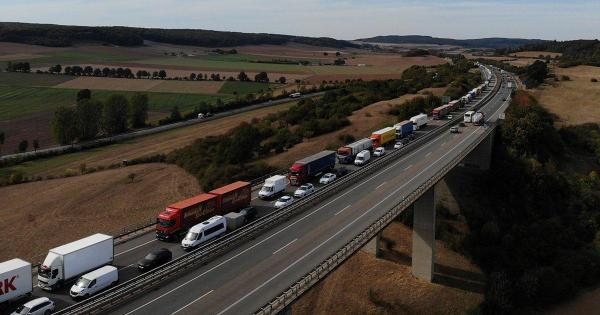
More HGV traffic restrictions in Tyrol
In the second half of June the Austrian authorities have planned 4 days (13, 14, 15 and 17 June) when the number of lorries entering Tyrol will be limited.
On theses days, from 05:00 AM the police will slow down HGV traffic at a designated checkpoint on the A12 near Kufstein Nord in the direction of Innsbruck and, if necessary, will stop it in order to make sure that only about 300 lorries arriving from Germany are allowed to cross the border per hour.
The following list includes dates remaining until the end of the year when southbound HGV traffic at the Kufstein / Kiefersfelden border crossing will be limited:
June
June 13 (Monday)
June 14 (Tuesday)
June 15 (Wednesday)
June 17 (Friday)
July
July 4 (Monday)
July 11 (Monday)
July 18 (Monday)
July 25 (Monday)
October
October 4 (Tuesday)
October 27 (Thursday)
November
November 2 (Wednesday)
November 3 (Thursday)
November 16 (Wednesday)
November 17 (Thursday)
November 23 (Wednesday)
November 24 (Thursday)
November 30 (Wednesday)
December
December 1 (Thursday)
December 9 (Friday)
December 13 (Tuesday)
December 14 (Wednesday).
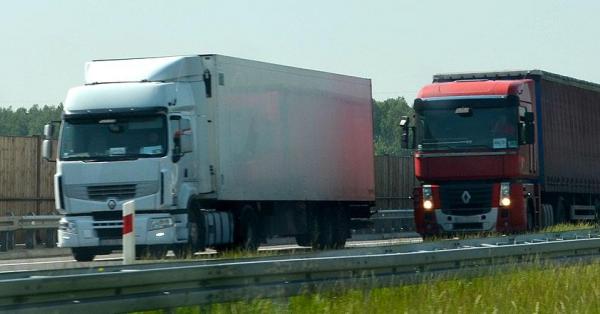
HGV restrictions in Catalonia
Owing to forecasts of significant increases in traffic volume on 12 June, an additional restriction has been introduced on some road and motorway sections for vehicles or combinations of vehicles with a maximum authorised mass of more than 7.5 tons, which are required to use the right lane and must not overtake other vehicles and drive faster than 80 km/h.
The restrictions will be into effect on Sunday, June 12, between 3:00 PM and 10:00 PM on the following road sections:
✅ on the AP-7 motorway, between KP 158, where the B-30 joins the AP-7, in the commune of de Sant Cugat del Vallés, and KP 213 in the commune of Banyeres del Penedès
✅ on the B-23 motorway, between KP 8, exit 8 at Sant Feliu de Llobregat and Molins de Rei Sud in the commune of Sant Feliu de Llobregat, and KP 15.5 at the junction with AP-7, in the commune Castellbisbal
✅ on the northern section of the C-32, between KP 84.5, at the junction with the B-20, in the municipality of Montgat and KP 114, at the junction 113 at Canet de Mar, in the municipality of Canet de Mar.

The Netherlands: A7 across the Afsluitdijk dam closed at night
Due to renovation works, the motorway section across the Afsluitdijk dam (between Den Oever and the Zurich junction) will be closed from 10.00 PM on June to 8:00 AM on June 11.
The following diversion routes are available:
In the direction of Friesland:
– Traffic from the south-western part of the Netherlands is diverted via the A9 / A1 and A6 motorways.
– Traffic from Nothern Holland is diverted via the N307 Houtribdijk (Enkhuizen – Lelystad) and A6.
– Traffic from Friesland towards the south-western part of the Netherlands is diverted via the A6 / A1 and A9 motorways.
– Traffic from Friesland towards Nothern Holland is diverted via the A6 and N307 Houtribdijk (Lelystad – Enkhuizen).
Renovation works may take more or less time depending on their progress.
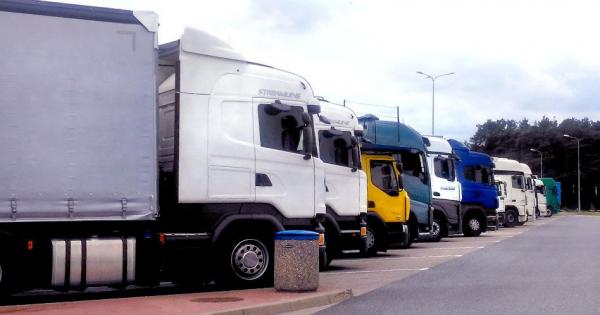
Jak wygląda kontrola regularnego 45 godzinnego odpoczynku w Niemczech?
Czy odpoczynek 44 godzinny to już odpoczynek regularny?
Odpoczynek trwający mniej niż 45 godzin nie będzie uznany za regularny tygodniowy odpoczynek w rozumieniu Rozporządzenia (WE) nr 561/2006, a co za tym idzie – w sytuacji gdy kierowca odbierze np. 44 godzinny odpoczynek, kara nałożona zostanie tylko za godziny brakujące do regularnego tygodniowego odpoczynku.
Szczegółowe informacje dotyczące kontroli dostępne na stronie .
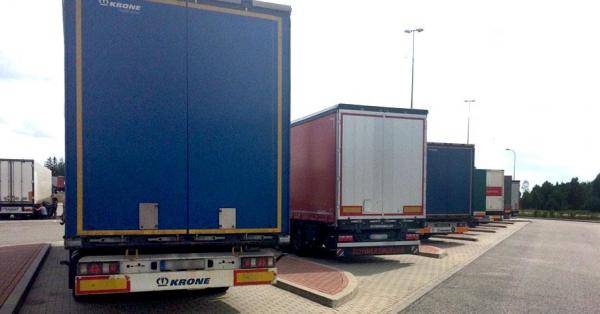
Kontrola nie przerywa okresu odpoczynku
Zgodnie z decyzją niemieckiego Ministerstwa Transportu i Infrastruktury Cyfrowej przeprowadzenie kontroli nie powoduje automatycznego przerwania okresu odpoczynku.
Uzasadnieniem takiego stanowiska jest fakt, że samo sprawdzenie wydruków tachografu nie wymaga żadnego udziału kierowcy a fakt kontroli polegającej na sprawdzeniu odczytów nie jest rejestrowany w pamięci urządzenia.
Więcej na ten temat w artykule.